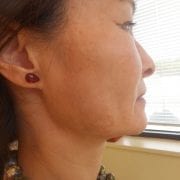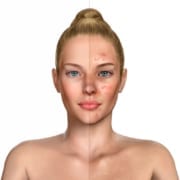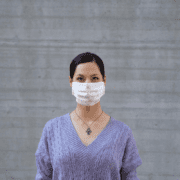5 Skin Tips for People with Diabetes

According to the 2017 National Diabetes Statistics Report there are 30.3 million people with diabetes (9.4% of the US population) including 23.1 million people who are diagnosed and 7.2 million people (23.8%) undiagnosed.
Patients with diabetes are more susceptible to skin infections, especially on the feet and on the skin of the ear. More than 75% of patients with diabetes will have skin lesions. The most common is xerosis or dryness. Dry skin affects 50% of those with type 1 diabetes. Keratosis pilaris, or rough spots on the sides of arms affect about 10% of patients. Itching of the skin, especially on the torso, is very common.
Also occurring are smooth yellow plaques on the front of the shins called Necrobiosis lipoidica. These lesions are usually painless and are 3 times as likely to occur in women than in men. They can be treated with topical creams as well as oral medications that improve circulation, such as low-dose aspirin, pentoxifylline, dipyridamole and nicotimamide.
70% of diabetic men over 60 will develop diabetic dermopathy or shin spots. Over time these become dark depressions in the skin.
Skincare Tips for Diabetes Patients
So how does one prevent or treat these irritations caused by diabetes? Besides keeping your diabetes under control, here are some tips you can follow for skin care.
- Moisturize daily with an unscented emollient such as Cerave, Cetaphil or Uradin 10 lotion. Apply when skin is still damp- within 3 minutes of getting out of the bath or shower.
- Use a moisturizing, fragrance-free cleanser such as Dove soap. Oatmeal baths can also help reduce itching.
- Thoroughly dry skin folds such as underneath the breasts or between toes. Trapped moisture is a breeding ground for yeast and fungal infections.
- Check your feet daily for sores or cuts and treat with a topical antibiotic and bandage. Seek medical attention for any sores that have not healed or are red, swollen, hot or draining pus.
- Don’t cut cuticles around your nails as this can lead to infection.
Note that not all-natural health and beauty products are 100% natural. Many include fragrance and other ingredients that can irritate sensitive skin. Be sure to read the labels.
If you are concerned about your skin or whether you have diabetes, consult a physician.










